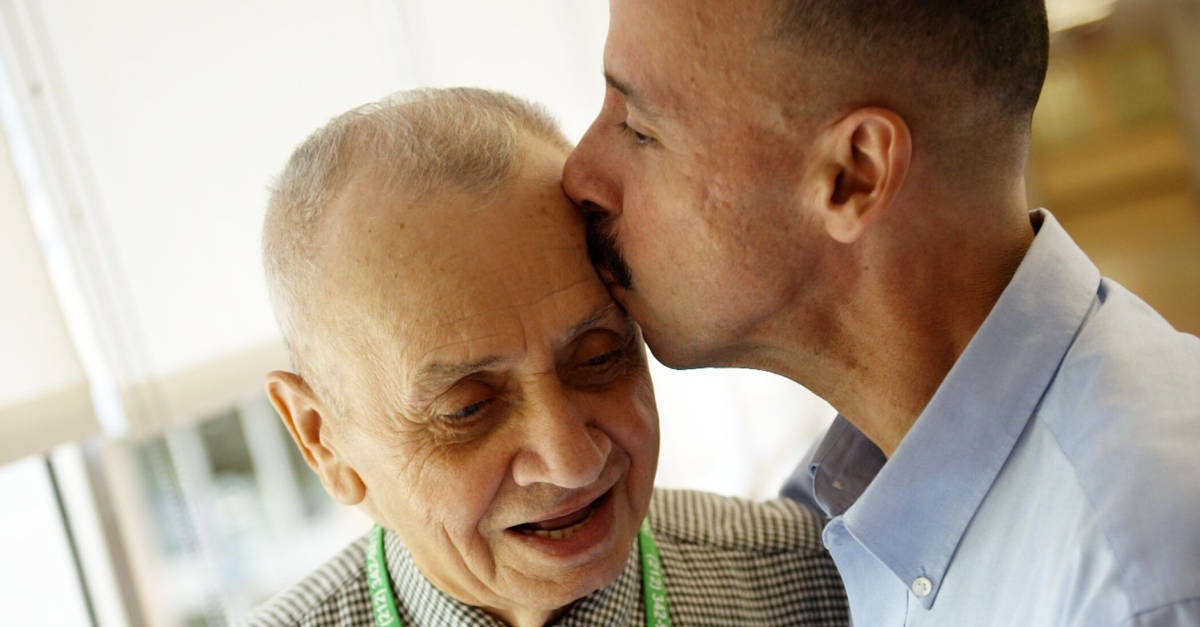
Is Hospice Care Right for Your Loved One with Dementia?
Experiencing a loved one suffering from the cognitive decline associated with dementia is incredibly difficult. However, most people don’t realize that there is an option to ease that suffering for loved ones and families. Hospice care is an excellent way to ensure someone with advanced dementia receives the comforting, specialized care they need. For many families, choosing hospice care is a breath of fresh air and an option to enjoy better their time together.
The team at MJHS Health System has compiled the following to help you understand your hospice care options. We aim to offer you the support you need while navigating this next stage in caring for your loved one.
When Should You Begin to Consider Hospice Care?
Dementia is a condition often marked by its slow progression. Despite this, you can begin to consider hospice care when a medical professional believes there is a life expectancy of six months or less. You will also need a physician’s referral. Family members should consider their doctor’s advice and any advance directives created by their loved one when deciding to begin hospice care. Early-stage patients should be part of this decision as well.
Hospice care provides expert medical care, pain management, and emotional and spiritual support tailored to the needs and wishes of a patient with a terminal disease or illness. The focus becomes on comfort, helping your loved one relieve symptoms of dementia.
Choosing the Right Hospice Care for Your Family Member’s Needs
If you and your family, loved one, and the medical provider agrees that hospice care is the next step, you may have questions about choosing the right program. It is also important to note that care can be provided in a variety of locations such as the patient’s home, hospice facilities, hospitals, nursing homes or other long-term care facilities depending on the level of care required. Learn more about hospice care.
Patients suffering from dementia have specific needs related to their cognitive impairment. Some hospice organizations specialize in providing patients with memory care, aimed at reconnecting patients with their passions through therapeutic activities like music therapy and art therapy.
Do your research and learn as much as you can about how the program cares for patients with dementia. You want to feel comfortable that your loved one is well cared for and given the support they need physically, emotionally, and spiritually. Here are some helpful questions to ask when searching for hospice care for a loved one with dementia:
- Is care provided in the home or at a facility? Is there an opportunity to move locations, if needed?
- Are healthcare professionals trained to work with dementia patients?
- Have they worked with dementia patients before?
- Do they have a 24/7 phone line or access center for families?
- Do they offer services to help the family and friends of the patient?
- Will Home Health Aides or team members administer medications?
- How do Home Health Aides and team members handle challenges like wandering or aggression?
- Do they offer therapeutic services, such as art, dance and music therapy and sundowning programs? These can make all the difference in day-to-day care.
Support for Families
Be kind to yourself during this difficult time. Take advantage of counseling, caregiver support groups and bereavement services that the hospice organization offers. Keep the lines of communication open between close friends and family and support each other. This is a time for togetherness, compassion, and love.
If you need to discuss hospice care options for your loved one, MJHS is here to help. We believe in giving everyone the respect and dignity they deserve, and the hope they need. Contact us today to learn more about our services.